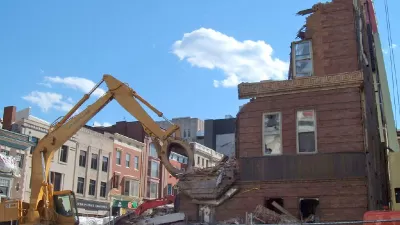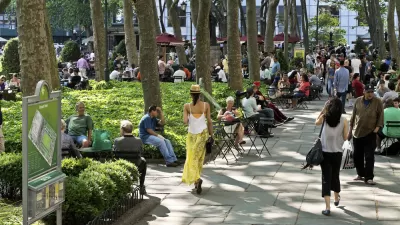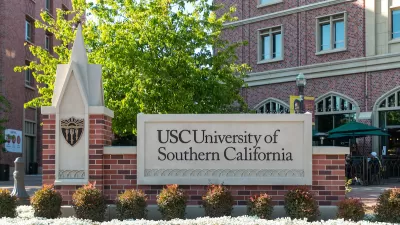Five U.S. cities will examine how their government operations impact people of color, and come up with solutions to advance racial equity.

National non-profit Living Cities has launched an initiative designed to help U.S. cities address structural racism in municipal policy and practice.
Racial Equity Here will provide technical and advisory support for cities to analyze the impact of government operations on people of color, especially youth. CEO Ben Hecht writes in the launch announcement:
From the inception of our country, government at the local, regional, state and federal level has played a role in creating and maintaining racial inequity. By understanding how municipal operations affect people of color and reproduce inequities, governments can begin to address them in transformative ways.
The first cohort to participate in the program includes Albuquerque, New Mexico; Austin, Texas; Grand Rapids, Michigan; Louisville, Kentucky; and Philadelphia, Pennsylvania.
Collaborating with Living Cities on the initiative are the Government Alliance on Race and Equity (part of the Center for Social Inclusion) and the Haas Institute for a Fair and Inclusive Society at the University of California, Berkeley. The group initially convened in response to the 2015 death of Freddie Gray in police custody.
FULL STORY: Announcing Racial Equity Here

Planetizen Federal Action Tracker
A weekly monitor of how Trump’s orders and actions are impacting planners and planning in America.

Maui's Vacation Rental Debate Turns Ugly
Verbal attacks, misinformation campaigns and fistfights plague a high-stakes debate to convert thousands of vacation rentals into long-term housing.

San Francisco Suspends Traffic Calming Amidst Record Deaths
Citing “a challenging fiscal landscape,” the city will cease the program on the heels of 42 traffic deaths, including 24 pedestrians.

Amtrak Rolls Out New Orleans to Alabama “Mardi Gras” Train
The new service will operate morning and evening departures between Mobile and New Orleans.

The Subversive Car-Free Guide to Trump's Great American Road Trip
Car-free ways to access Chicagoland’s best tourist attractions.

San Antonio and Austin are Fusing Into one Massive Megaregion
The region spanning the two central Texas cities is growing fast, posing challenges for local infrastructure and water supplies.
Urban Design for Planners 1: Software Tools
This six-course series explores essential urban design concepts using open source software and equips planners with the tools they need to participate fully in the urban design process.
Planning for Universal Design
Learn the tools for implementing Universal Design in planning regulations.
Heyer Gruel & Associates PA
JM Goldson LLC
Custer County Colorado
City of Camden Redevelopment Agency
City of Astoria
Transportation Research & Education Center (TREC) at Portland State University
Jefferson Parish Government
Camden Redevelopment Agency
City of Claremont





























